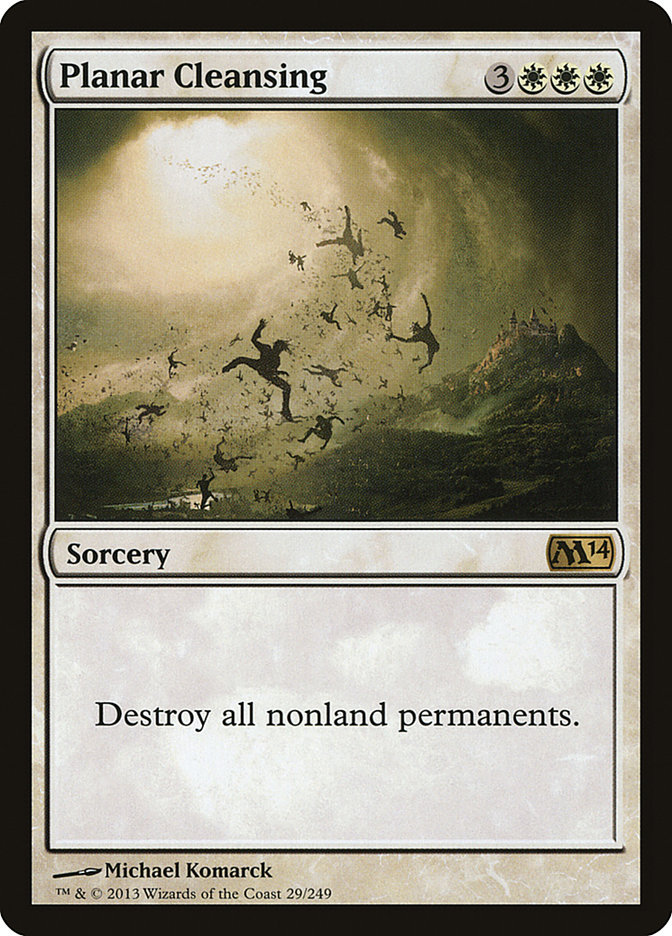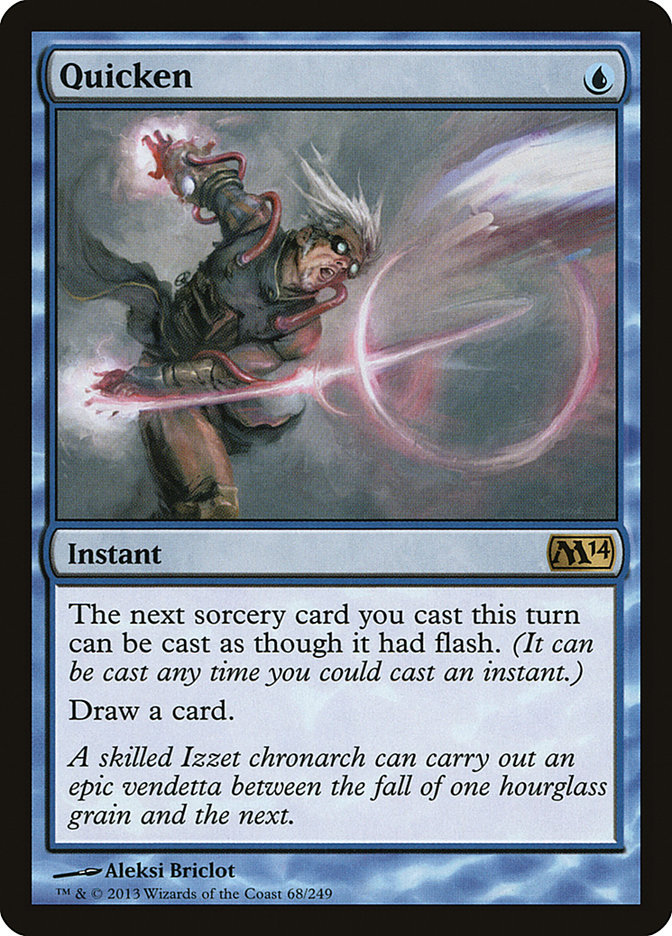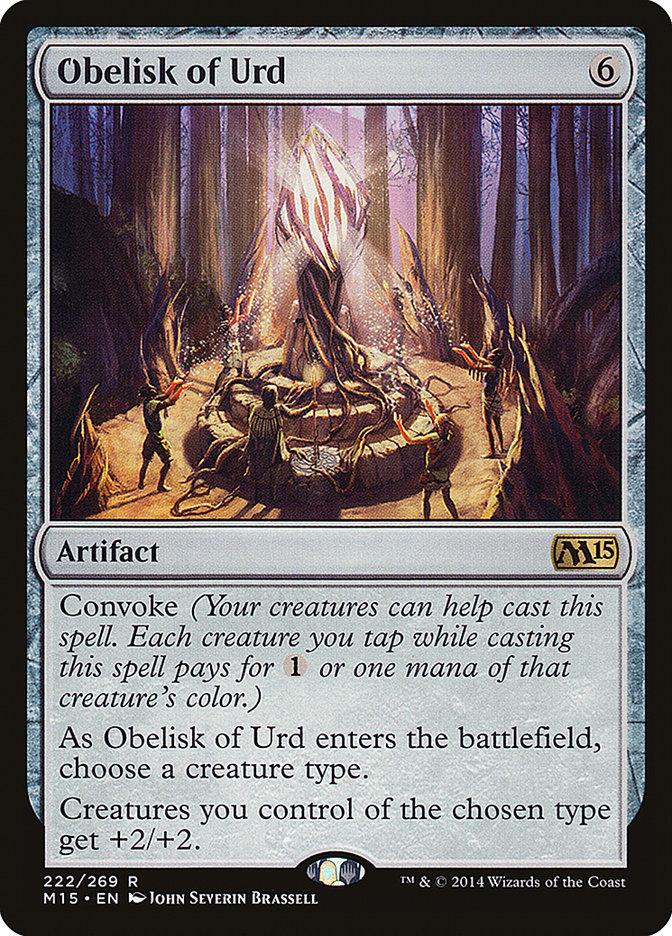As I give myself a week to digest the PTQ changes from last week’s article, we are hit fast with even more changes! I will get to
those a bit later though.
After mulling over the changes to the PTQ system that went into effect recently, I think I was a bit off on some of my points. My last article was written
right after hearing the news, and there were definitely some knee jerk reactions. It seems reasonably clear that TOs will make the actual regional PTQs
into bigger weekend events with hopefully enough large side events to make it worth the trip for all players, qualified or not.
The system also doesn’t seem too bad for people like myself who live in populated areas like the east coast, with plenty of access to higher level stores
capable of holding PTQQs. We should still get a good number of events, and as long as scheduling isn’t that bad with the regional PTQ, it could be worse.
Smaller, local PTQQs will be easier to get to, smaller, and easier in general, at least in theory.
The two big problems are for people in less populated areas and if theory doesn’t match reality.
There’s been a good bit of grumbling from people who live in more remote areas about the new system and with just cause. Players in the northwestern United
States, some of the smaller European countries, and basically any remote area are going to have a long trip to a PTQQ and likely an even longer trip to
their regional PTQ which may even have them crossing multiple border lines. Locations aren’t set in Europe yet, but early estimated spots have a lot of
players very worried about having to take a seven-hour drive across borders just to have a chance to play on the Pro Tour. Honestly it’s almost silly for
me to be complaining when this new system makes things very difficult for these players. In the past these somewhat more isolated areas may have only
gotten one PTQ, but at least it was in their area. The winner won their slot to the PT and got their plane ticket as well, and they didn’t have to travel
another seven hours just to try again.
There’s also the issue that we really have no precedent for this system. We don’t know how big or popular these PTQQs are going to be.
My major concern about the east coast PTQQs is that they are going to be huge; they may cause major logistical concerns with the smaller stores trying to
run them. PTQs in the northeast are more than capable of hitting 300 players consistently, and if even a third of these players show up at some of the
local stores on Long Island, they are going to be completely blown away. There are something like six or seven stores on Long Island capable of holding a
PTQQ, and only two of them could reasonably seat more than fifty players. What’s going to stop all those dedicated PTQ regulars from traveling to PTQQs as
well? And what happens when they all show up to Tiny Magic Store Inc.? The idea of having smaller, more local events that matter is great, but making them
matter is going to make it difficult to make them small.
The lack of format support is also somewhat disturbing. I would imagine most TOs are just going to run Standard events, as they are the easiest to run and
the most common format. What does that mean for Limited, or Wizard’s crown jewel of the last few years, Modern? Without mandated seasons what will be the
reason to play these formats? Playing different formats is fun and interesting and shows the range of Magic as a game. They also allow for a lot of fun
innovation as they are typically much less explored as formats than Standard. Lastly, they also help keep the secondary market healthy, as they keep up
demand for cards that have rotated out of Standard. While Standard is definitely the most popular and important format, the other formats are still very
important for the success of the game as a whole.
Which brings us to our next topic for the day:
At Pro Tour M15, they announced that the Constructed portion of every Pro Tour next season will be Standard. No more Block Constructed, no more Modern.
This, coinciding with allowing stores to run the PTQQs in any format they want (which will most likely be Standard) makes it certainly seem that Wizards
only wants to focus on Standard. Of course, this is somewhat odd given how much they have put into Modern in the last few years, going as far as to release
a set specifically for the proliferation of the format.
This change has been received pretty poorly by the player base and with just cause. While Standard may be the most popular and widely played format in the
game, and the best for the game as it is a rotating format that constantly sells new cards, you can’t stop serving vanilla ice cream because chocolate is
the most popular flavor. The few mainstay formats in Magic are definitely loved by different player groups, and not catering to that diversity is risking
making things stale for everyone. Format changes are fun and fresh, as sometimes you get tired of one, and it’s a fun change when the season switches over.
Even a format like Block Constructed, which is usually not that popular, is still an interesting and welcome change from the norm. Unexplored formats that
don’t get a ton of exposure are often very interesting for that exact reason; they aren’t anywhere close to solved and there’s a lot of room to explore.
This change seems very shortsighted to me. While Standard may be the more popular format and this might make events do a bit better and sell more cards in
the short term, I think over the long term this change is bad for the health of the game.
Aside from community and organized play issues, there’s also other awesome stuff going on too! We have a new Pro Tour champion, and check out what put him
there:
Back at the last SCG Invitational, Reid Duke took the shell of my U/W Planar Cleansing Control deck and made it as pure as a control deck can be made: all
answers, all the time. His only win conditions were 4 Mutavault, 3 Jace, Architect of Thought, and decking via the one Elixir of Immortality. Because all
of these cards were already reasonable control cards, Reid used up zero slots of his deck on cards whose main purpose was to win the game, like Aetherling
or Elspeth, Sun’s Champion. This somewhat crazy approach was helped greatly by the Invitational’s longer that normal rounds, as such a deck has to fight
not only its opponent but also the clock. Reid made top 8 of the Invitational, and while I don’t think I would play the deck in such a manner (mostly
because of how good Elspeth, Sun’s Champion is), it was an excellent finish.
At Pro Tour M15, Ivan Floch took the deck and made it a bit quicker:
Planeswalkers (3)
Lands (26)
Spells (31)
- 2 Last Breath
- 2 Syncopate
- 4 Quicken
- 3 Divination
- 3 Planar Cleansing
- 1 Elixir of Immortality
- 4 Azorius Charm
- 4 Supreme Verdict
- 4 Sphinx's Revelation
- 4 Dissolve
Sideboard

I had tried a list somewhat similar to this one once or twice but ended up abandoning it pretty quickly. Ivan stuck with it, however, and was able to ride
it all the way to the top of Magic (and a cool $40k). Ivan’s Nyx-Fleece Rams did a bunch of work against all the aggressive red decks in the tournament,
and the deck seemed quite well positioned.
The only major gripe I have with the deck is that there are only two copies of Mutavault. Mutavault is one of best cards in Standard; it is critical for a
deck with no cheap answers to planeswalkers. Just having one of your first four lands be a Mutavault completely changes how an opponent has to play their
Jace, Architect of Thought, and Mutavault is also very good at pressuring Mono-Black Devotion’s life total which can be useful against their
Thoughtseize/Underworld Connections-heavy draws.
Regardless it’s pretty awesome to see a deck I had a hand in take down Magic’s biggest event.
Unfortunately, there were no new, breakout decks in the top 8, but there were a few interesting decks here or there. Most interesting of all was this brew
from Alex Sittner:
Creatures (23)
- 4 Dryad Militant
- 4 Boros Elite
- 4 Legion Loyalist
- 4 Akroan Crusader
- 3 Favored Hoplite
- 4 Soldier of the Pantheon
Lands (20)
Spells (17)
Sideboard

Using Obelisk of Urd as a linchpin, this deck is awesome in its simplicity. Take a bunch of one-drops that are soldiers, four Obelisk of Urd, some other
ways to pump them all up, and you’re done!
Obelisk of Urd is a really awesome card that I think will see a good amount of play where applicable, as the effect is very powerful and the rate is great
too. Obviously, it is difficult to play as it requires a tribal deck, but in decks where it is good it is going to be very good. This deck puts to
use many of under-utilized block mechanics like heroic, battalion, and convoke to use synergy to trump overall power level. It’s quick, efficient, and
looks like a blast to play.
We are hitting the dog days of summer, and there is a ton of Magic to be played. M15 is still very new, and the decks of Pro Tour M15 hopefully only
scratched the surface. We also have a new fall set on the horizon bringing with it a major rotation, so there is a lot going on.
We are also entering the home stretch for the SCG Players’ Championship race, and I will be in Syracuse this weekend in search of more points and a good
finish. Hopefully I’ll see you there!



